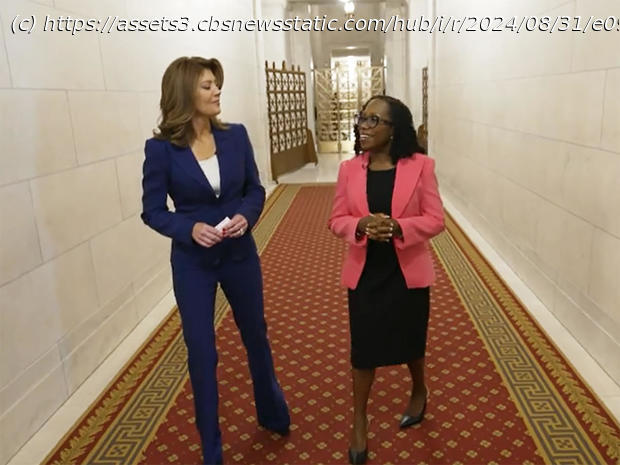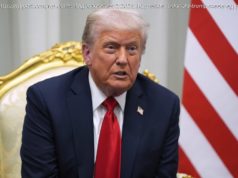In her conversation with „Sunday Morning,“ Justice Ketanji Brown Jackson talks about one of the court’s most divisive decisions, as well as her own journey to becoming the first Black woman to sit on the nation’s highest court.
Walking the halls of the U.S. Supreme Court, Justice Ketanji Brown Jackson said, „I’m still just so floored being in this building.“
In 2022 Jackson was named by President Joe Biden to the Supreme Court. In the two years since, the court’s newest and youngest member has become the most prolific questioner from the Bench. She said she hasn’t changed since she was a district court judge. „I have a lot of questions!“ she laughed. „I think it’s harder, obviously, when you’re one of nine than when you’re all alone. And there is an adjustment period that I think had to happen from my perspective. I wasn’t doing anything different. And maybe I should have been! But I have questions, and we have a very complicated legal system. And these issues are hard.“
In her first interview since being confirmed to the Supreme Court, Jackson talked with „CBS Evening News“ host and managing editor Norah O’Donnell about some of the court’s most divisive decisions, as well as her own journey to becoming the first Black Woman to sit on the nation’s highest court.
Here are some highlights from Jackson’s interview.On presidential immunity
One of the most controversial decisions by the Roberts Court this term was in Trump v. United States, a case which has major implications regarding oversight of the chief executive and the powers wielded from the Oval Office.
The former president was indicted by a federal grand jury for his efforts to overturn Joe Biden’s election victory, including spreading knowingly false claims of „election fraud“, and leading the January 6th insurrection at the Capitol intended to obstruct the certification of the Electoral College ballots.
Trump appealed to the District Court in D.C. to dismiss the charges, claiming that he possessed „absolute immunity“ from prosecution for actions taken in his capacity as president. The District Court denied his motion, which the D.C. Circuit affirmed. However, on July 1, the Supreme Court ruled, 6-3, that taken during their time in office.
Jackson, who joined those in opposition, wrote in her dissent that the opinion by the Court’s conservative members „breaks new and dangerous ground. Departing from the traditional model of individual accountability, the majority has concocted something entirely different: a Presidential accountability model that creates immunity—an exemption from criminal law—applicable only to the most powerful official in our Government. … In the end, then, under the majority’s new paradigm, whether the President will be exempt from legal liability for murder, assault, theft, fraud, or any other reprehensible and outlawed criminal act will turn on whether he committed that act in his official capacity, such that the answer to the immunity question will always and inevitably be: It depends.“
Jackson told O’Donnell, „I was concerned about a system that appeared to provide immunity for one individual under one set of circumstances, when we have a criminal justice system that had ordinarily treated everyone the same.
Start
United States
USA — mix Highlights from Justice Ketanji Brown Jackson's first interview since joining the Supreme...






